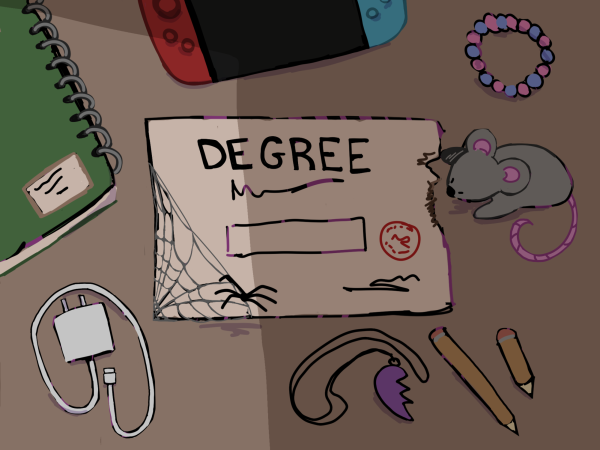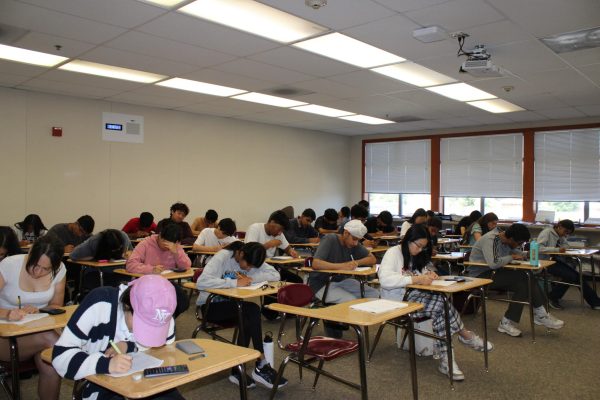The Pledge should no longer be required
One morning last year I stood up, put my hand over my heart, and recited the Pledge of Allegiance just as I had about 750 times before.
But this time it was different because I wondered why I was doing it. Why was I mindlessly pledging my allegiance to a piece of cloth? What was I even saying?
I had repeated the words so many times before that they were ingrained in my mind. But I had never really thought about what they meant.
While I personally have chosen to refrain from participating in the pledge since then, it is not my intent to force people to make this same decision.
It is only patriotic to participate if the duration of the time of the Pledge of Allegiance is used to actually think about one’s country and how one can contribute to it.
I had been taught that it was “patriotic” to recite the pledge, but I couldn’t see what was so patriotic about mindlessly mumbling the pledge.
The more I thought about it, the less American the Pledge of Allegiance seemed.
Young children are being forced into reciting this pledge with words that they don’t even understand.
They have to say it every day until they can do it in their sleep. These children have no choice but to vow devotion to their country without even knowing what that devotion entails.
The fact that it took me 15 years to even question the pledge is alarming in itself.
How could I have been participating in this cult-like recitation for so long without wondering why I was doing it? This concerned me so much that I began to realize how contradictory the pledge is.
The pledge claims to represent freedom for all, but in several states it is required by law that all students recite it in class.
Our country claims to not have an official religion, but on June 27, “a 2-1 majority vote by the 9th Circuit Court of Appeals in San Francisco decided that [“one nation, under God”] constitute an official endorsement of the belief in a single God,” according to abcnews.com.
The pledge was originally secular, despite being written by a minister. And the controversial phrase “under God” was not added until 1954, 62 years after the original pledge was published.
The author of the original pledge, Francis Bellamy, wrote the pledge with the intention for all countries to use it, according to smithsonian.com.
The Pledge seems to lose its merit in today’s evolving society where students regurgitate words that they do not understand.

